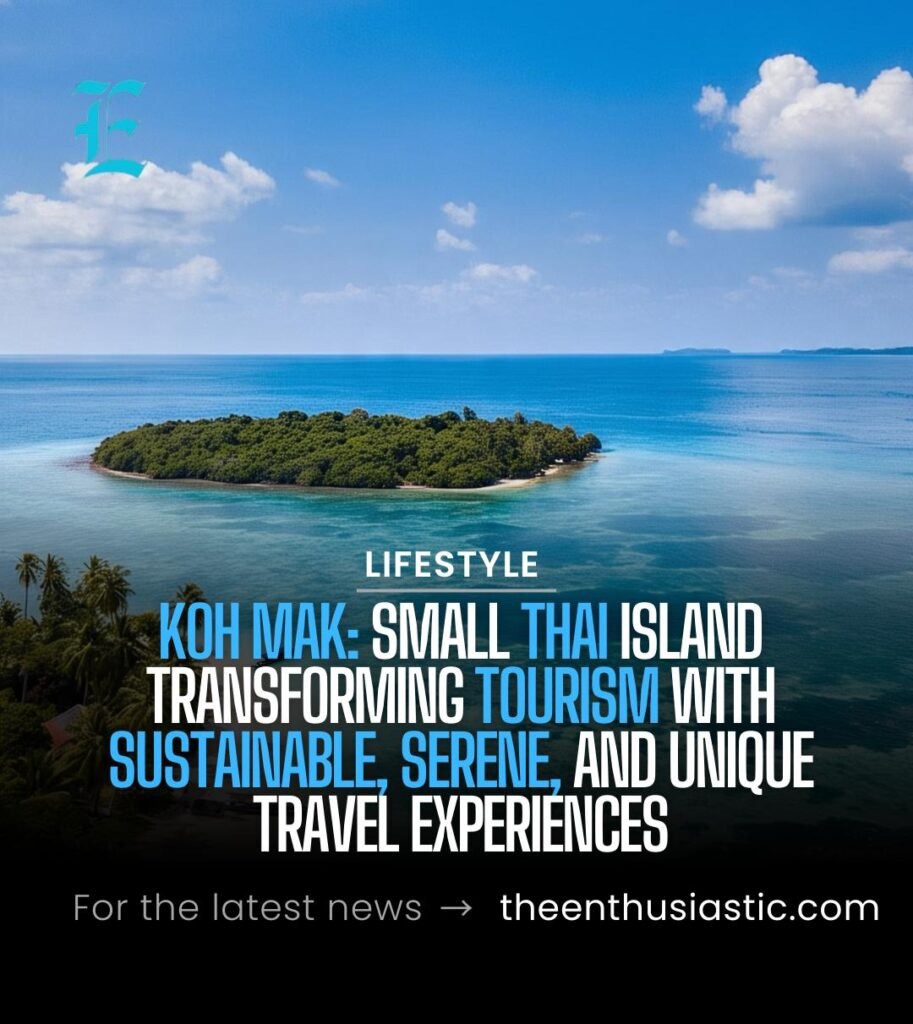Koh Mak: Thailand’s Hidden Gem Leading a New Wave of Sustainable, Serene Tourism

Table of Contents
As Thailand braces for another surge in tourism with the upcoming third season of The White Lotus set to spotlight the country’s island escapes, a quiet revolution is taking place far from the glitz of Phuket and the bustle of Koh Samui. In the Gulf of Thailand, Koh Mak—a tiny, tranquil island—is quietly redefining what it means to travel sustainably.
A Peaceful Alternative to Mass Tourism
Just 16 square kilometers in size, Koh Mak may be small, but its ambition is anything but. In a region often dominated by towering resorts, loud beach parties, and environmental strain, Koh Mak offers a compelling counterpoint: no global hotel chains, no fast-food giants, not even a single 7-Eleven—a true rarity in Thailand.
Approaching its southern shore by speedboat, visitors are greeted not by high-rises or jet skis, but by golden sands, calm shallow waters, and palm trees swaying over bike-friendly roads. The absence of cars is one of many choices the island has made in its pursuit of a low-carbon, low-impact lifestyle.
Sustainability as a Way of Life
Koh Mak holds the distinction of being Thailand’s first officially recognized low-carbon destination, a status backed by the Tourism Authority of Thailand (TAT). Unlike many Thai islands governed by the state or subjected to commercial development, Koh Mak remains under the stewardship of five local families, descendants of Luang Prompakdee, who bought much of the land in the early 1900s.
This tight-knit ownership model has empowered the island to chart its own course. According to Yodchai Sudhidhanakul, a descendant and president of the Koh Mak Tourism Club, this structure has helped preserve the island’s serenity and ensure that tourism serves the community—not the other way around.
“We welcome tourists,” Sudhidhanakul says, “but we hope to attract visitors who respect the quiet and appreciate the island’s calm spirit.”
The Koh Mak Charter: A Blueprint for Conscious Travel
In 2018, Koh Mak residents signed the Koh Mak Charter, a visionary agreement designed to protect the island’s unique character and natural beauty. The charter prohibits vehicle ferries, limits motorbike rentals, bans loud music after 10 p.m., and discourages water sports that disrupt the peace or marine ecosystems. Single-use foam and plastic containers are also banned, further reducing environmental impact.
The island has around 750 accommodation units, a cap that ensures overtourism is never a problem. Instead, the focus is on slow tourism—the idea that less is more when it comes to exploration and cultural exchange.
Hands-On Eco Experiences
Koh Mak’s sustainability efforts extend well beyond policy. Local organizations and residents have built a rich offering of eco-friendly experiences for visitors:
The Koh Mak Coral Conservation Group runs guided snorkeling tours that allow tourists to help restore coral reefs using recycled PVC structures.
Trash Hero Koh Mak, a volunteer movement, organizes weekly beach cleanups, educating both locals and tourists on waste reduction and recycling.
At a local coconut farm, guests can learn how to harvest coconuts and make cold-pressed coconut oil.
Workshops are available for traditional plant-based tie-dye, using natural colors derived from local flora.
A Model for the Future
Koh Mak’s transformation into a sustainable sanctuary isn’t about rejecting tourism—it’s about reimagining it. The island’s leaders believe its future lies not in attracting the most visitors, but in attracting the right kind: people who value silence over nightlife, nature over concrete, and purpose over popularity.
As Thailand’s more mainstream destinations prepare for another tourist influx, Koh Mak stands as a model for mindful travel—a place where nature and culture are not just protected but celebrated. It’s not just a throwback to a simpler time; it’s a vision of a more responsible and conscious future for global tourism.
